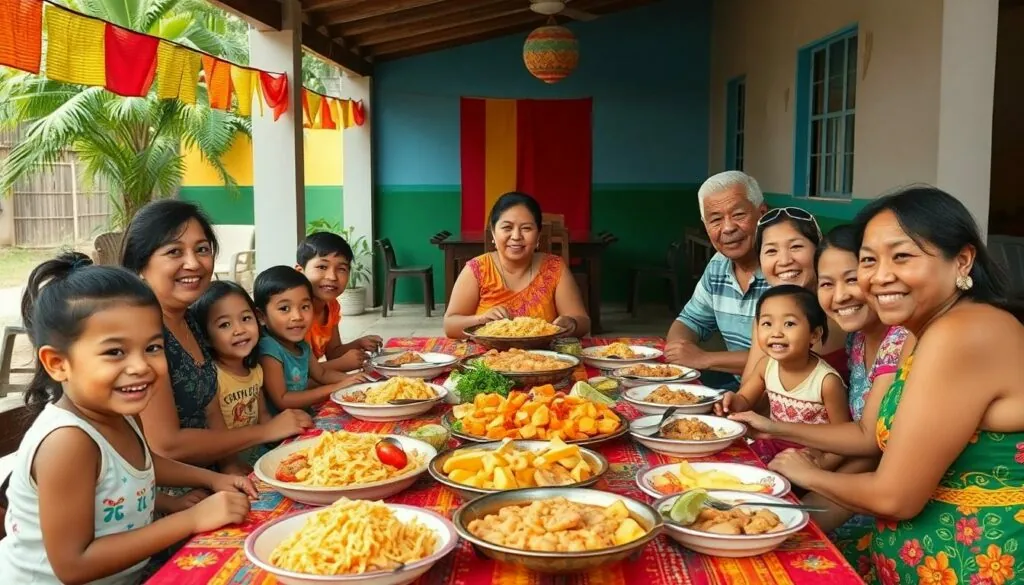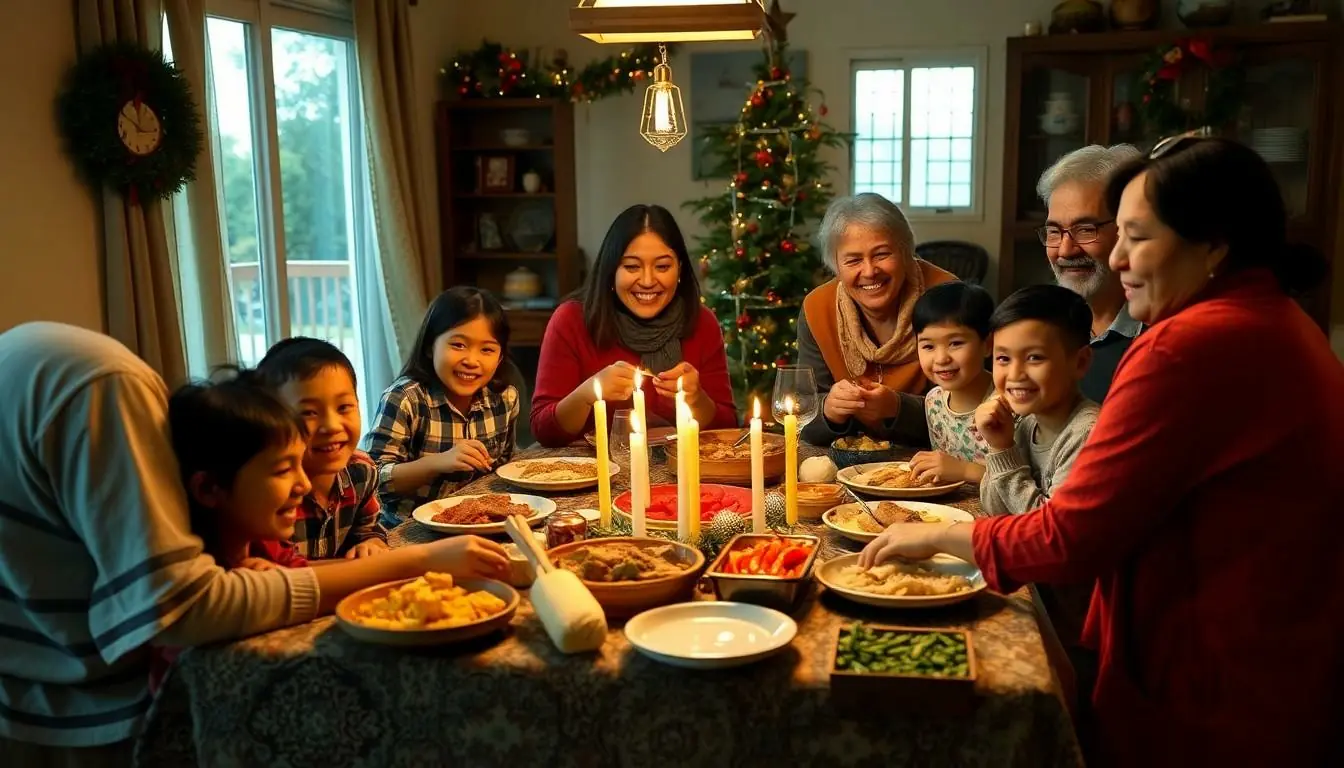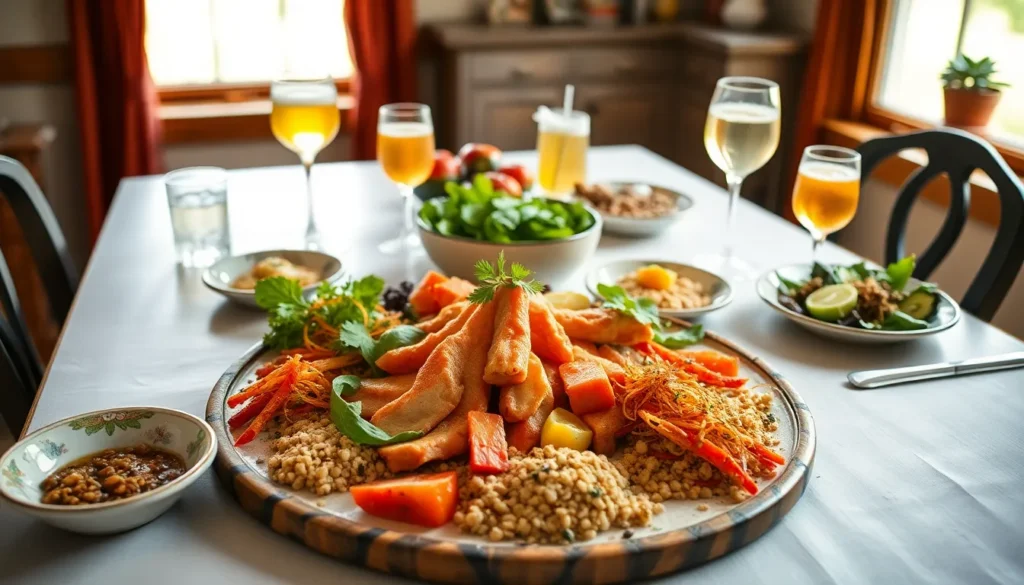Table of Contents
ToggleHonduran family traditions burst with vibrant colors, mouthwatering aromas and heartwarming customs that have been passed down through generations. From the bustling streets of Tegucigalpa to the serene beaches of Roatán these cherished practices continue to shape the fabric of Honduran society.
At the heart of every Honduran home lies an unwavering commitment to family unity and respect for elders. Whether it’s gathering for Sunday meals complete with traditional dishes like baleadas and pupusas or celebrating life’s milestones with elaborate festivities families in Honduras prioritize togetherness above all else. These cultural traditions showcase the perfect blend of indigenous Mayan Spanish and Caribbean influences that make Honduras truly unique.
Traditional Family Values in Honduras
Honduran family values center on strong bonds fostered through daily interactions between immediate and extended family members. These values reflect centuries-old customs that emphasize unity, respect and mutual support.
Role of Extended Family
Extended family members in Honduras live in close proximity, often sharing homes or residing in neighboring houses. Grandparents, aunts, uncles and cousins participate actively in child-rearing responsibilities through daily caregiving, education and emotional support. Family gatherings occur multiple times per week, with relatives sharing meals, celebrating achievements and supporting each other during challenging times. Extended families pool resources to help with education costs, business ventures or home purchases. This collaborative approach creates a safety net that strengthens family bonds while preserving cultural traditions.
Respect for Elders
Honduran culture places elders at the forefront of family decision-making and guidance. Children address older relatives using formal titles like “Don” for men and “Doña” for women. Grandparents pass down family histories, traditional recipes and cultural practices through oral storytelling during regular family gatherings. Younger family members seek advice from elders on important life decisions including marriage, career choices and child-rearing. Adult children take responsibility for caring for aging parents, often integrating them into their households rather than using external care facilities. This reciprocal care system reinforces intergenerational bonds while maintaining cultural continuity.
Honduran Family Celebrations
Honduran families embrace celebrations as cornerstone moments for gathering multiple generations under one roof. These festivities blend religious customs native traditions cultural practices that strengthen family bonds.
Christmas and New Year Traditions
Honduran Christmas celebrations start on December 24th with the Nochebuena feast. Families gather at 8 pm for a traditional dinner featuring roasted pork nacatamales sweet tamales rum cake. The celebration continues until midnight when family members exchange gifts share blessings. On December 31st Hondurans practice unique customs like burning año viejo (old year) dolls throwing water out windows sweeping away negative energy. Special dishes mark this occasion including:
| Traditional Dish | Significance |
|---|---|
| Tamales | Prosperity |
| Rosquillas | Family unity |
| Pan de coco | Good fortune |
Birthday Customs
Honduran birthday celebrations emphasize family gatherings music traditional foods. The quinceañera marks a girl’s 15th birthday with elaborate ceremonies religious blessings family feasts. Birthday celebrations include:
- Breaking piñatas filled with candies fruits small toys
- Serving traditional tres leches cake decorated with fresh fruit
- Playing traditional games like “la cola del burro” (pin the tail on the donkey)
- Hosting extended family members for a special lunch or dinner
- Presenting meaningful gifts often handmade by family members
Children receive blessings from grandparents godparents during birthday celebrations symbolizing guidance protection for the coming year.
Religious Traditions and Family Life
Religious practices form the cornerstone of Honduran family traditions, with 97% of families participating in religious activities together. The integration of faith into daily family life creates lasting bonds across generations through shared spiritual experiences.
Catholic Influences
Catholic teachings shape Honduran family structures through sacred rituals practiced in homes. Families display altars with religious icons featuring the Virgin Mary, Jesus Christ, and patron saints. Parents pass down Catholic values by teaching children daily prayers, grace before meals, and bedtime blessings. Godparents (padrinos) play essential roles in children’s spiritual development, attending religious ceremonies and providing moral guidance. Catholic marriage ceremonies unite extended families through elaborate church services followed by multi-day celebrations.
Religious Festivals
Religious festivals unite Honduran families through communal celebrations throughout the year. Semana Santa (Holy Week) brings families together for processions, special meals, and church services. The Feast of Saint Anthony draws communities to local churches for nine consecutive nights of prayer and celebration. Families participate in La Gritería on December 7, visiting neighborhood altars while singing hymns to honor the Immaculate Conception. The Day of the Virgin of Suyapa on February 3 features pilgrimages where extended families travel together to Honduras’ spiritual center in Tegucigalpa.
| Religious Festival | Date | Family Activity |
|---|---|---|
| Semana Santa | March/April | Processions & special meals |
| Feast of St. Anthony | June 13 | Nine nights of prayer |
| La Gritería | December 7 | Altar visits & hymn singing |
| Virgin of Suyapa | February 3 | Family pilgrimages |
Traditional Family Meals
Traditional Honduran family meals stand as a cornerstone of cultural identity, combining indigenous ingredients with Spanish colonial influences. The practice of sharing meals strengthens family bonds through time-honored recipes passed down through generations.
Sunday Family Gatherings
Sunday lunches in Honduras bring families together at grandparents’ homes for multi-course meals that last 3-4 hours. Extended family members arrive between 11 AM and noon, greeting each other with customary hugs and kisses. Children help set the table while adults prepare dishes in the kitchen, creating an atmosphere of shared responsibility. The main meal includes three courses: a hearty soup, meat-based entrées with sides, and homemade desserts. Common features include plátanos fritos, refried beans and fresh tortillas served family-style on large platters. After the meal, families spend time sharing stories, playing games or discussing important family matters.
Special Occasion Dishes
Honduran families prepare elaborate dishes for celebrations like weddings, birthdays and religious festivals. Nacatamales, made with corn masa and filled with pork, vegetables and rice, take 6-8 hours to prepare and symbolize family dedication. For Christmas Eve, families serve traditional dishes:
| Dish | Main Ingredients | Preparation Time |
|---|---|---|
| Pavo Relleno | Turkey, ground meat stuffing | 5-6 hours |
| Tamales de Elote | Fresh corn, cream, butter | 3-4 hours |
| Torrejas | Bread, honey, cinnamon | 1 hour |
| Rompopo | Milk, eggs, rum, vanilla | 2 hours |
These special dishes require multiple family members working together, combining specific techniques and recipes preserved across generations.
Marriage and Wedding Customs
Honduran marriage traditions blend Catholic religious elements with indigenous cultural practices, creating unique ceremonies that strengthen family bonds. Extended families participate actively in every aspect of the courtship and wedding process.
Courtship Practices
Traditional Honduran courtship follows established social protocols that involve both families. Young couples meet at church events, family gatherings or community celebrations under the watchful eyes of their relatives. A formal introduction between families marks the beginning of courtship, with the couple spending time together in chaperoned settings. The man demonstrates his commitment through regular visits to the woman’s home, bringing small gifts for her parents. Family elders guide the relationship, offering advice on compatibility based on shared values, religious beliefs and cultural backgrounds. The courtship period typically lasts 6-12 months, allowing families to build strong relationships before marriage discussions begin.
Wedding Ceremonies
Catholic weddings dominate Honduran marriage celebrations, with ceremonies incorporating distinct cultural elements. The bride wears a white dress adorned with traditional embroidery while the groom dons a formal suit with a guayabera shirt. Padrinos (godparents) serve as wedding sponsors, providing spiritual guidance and financial support for the ceremony. Traditional elements include the arras (13 gold coins symbolizing prosperity) the lazo (wedding lasso) which joins the couple during the ceremony. The reception features live marimba music, traditional dances like punta and traditional dishes such as carne asada and tamales. Extended families contribute to wedding preparations, from cooking traditional foods to creating handmade decorations.
Passing Down Cultural Heritage
Honduran families preserve their cultural heritage through time-honored practices that connect generations. Knowledge flows from elders to youth through structured traditions embedded in daily life.
Oral Storytelling
Honduran elders share ancestral tales during evening gatherings called “cuentos nocturnos.” Grandparents narrate stories of legendary figures like La Llorona the weeping woman or El Cadejo the spirit dog that protects travelers. Children learn traditional riddles “adivinanzas” while gathering for meals or celebrations. Elders incorporate moral lessons into their narratives teaching values like respect honesty family loyalty through tales of ancient Mayan heroes or colonial-era events. These stories feature local landmarks mythical creatures indigenous wisdom creating living connections to Honduras’s cultural roots.
Arts and Crafts
Traditional Honduran crafts encompass pottery making weaving textile arts wood carving. Female family members teach young girls the art of creating Lenca pottery using techniques passed down for centuries. Grandmothers demonstrate intricate embroidery patterns on traditional blouses called huipiles displaying regional motifs birds flowers geometric designs. Children learn to craft religious items for home altars including palm crosses ceramic figurines painted gourds. Families in rural areas maintain workshops where multiple generations produce handwoven hammocks baskets utilizing natural fibers dyes from local plants.
Conclusion
Honduran family traditions stand as a testament to the enduring power of cultural heritage and familial bonds. These cherished customs weave together religious devotion spiritual guidance and culinary excellence creating a rich tapestry of shared experiences that strengthen family connections.
From elaborate wedding ceremonies to intimate Sunday gatherings these traditions continue to shape modern Honduran society. They serve as vital bridges between past and present ensuring that future generations maintain their cultural identity while honoring their ancestors’ legacy.
The preservation of these meaningful traditions reflects Honduras’s commitment to family unity respect for elders and the celebration of life’s precious moments. Through these customs Honduran families create lasting memories and maintain the strong cultural foundations that have defined their society for generations.





